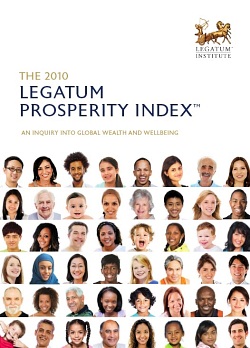 Gross Domestic Product, the venerable and most-favored benchmark of national economic health and output - on the part of most of the world’s economists - is increasingly viewed as an inadequate measure of the nation’s wealth and well-being.
This is not a new concept, as a Harvard Business Review blog post this month aptly notes. It quotes Robert F. Kennedy - in 1968- as saying that while GDP counts air pollution and cigarette advertising as economic activity it...
Gross Domestic Product, the venerable and most-favored benchmark of national economic health and output - on the part of most of the world’s economists - is increasingly viewed as an inadequate measure of the nation’s wealth and well-being.
This is not a new concept, as a Harvard Business Review blog post this month aptly notes. It quotes Robert F. Kennedy - in 1968- as saying that while GDP counts air pollution and cigarette advertising as economic activity it...
does not allow for the health of our children, the quality of their education, or the joy of their play. It does not include the beauty of our poetry or the strength of our marriages; the intelligence of our public debate or the integrity of our public officials. It measures neither our wit nor our courage; neither our wisdom nor our learning; neither our compassion nor our devotion to our country; it measures everything, in short, except that which makes life worthwhile.In short, as HBR continues, GDP is a “distortion of reality that guides us to decisions contrary to what people really want.” It makes that assertion after a meeting with representatives of the Legatum Institute, which promotes a “business approach to the practice of development, [a] holistic approach to the philosophy of development, and [an] integrated approach to the dimensions of development.” Legatum’s message, through its Prosperity Index, is that in order to keep the focus on real priorities, the components of prosperity need to be measured as carefully as GDP is measured. The index uses about 90 variables that capture both economic performance and credible measures relating to national wellbeing. The rankings of more than 100 nations include such factors as economy, personal freedom, health, security, education and social capital. GDP is an index that tracks a country’s entire economic output. It’s a handy and somewhat useful snapshot that’s pored over each month by economists and stat freaks. The idea in the debate about the efficacy and reliance on GDP is that a capability to measure non-financial values and intangibles on an equal footing with the so-called “hard” measures of economic output, such as income and product accounts, is sorely needed. (See 3p of May 19, 2010 for a related story.) There’s an increasing realization that GDP shortchanges human elements and factors in calculating our understanding of sustainable economic activity. Don’t abandon GDP - that will never happen anyway - but why not give weight to the numbers that measure the intangibles and social consequences of national life? The Prosperity Index is a good place to start.

Writer, editor, reader and generally good (okay mostly good, well sometimes good) guy trying to get by.














